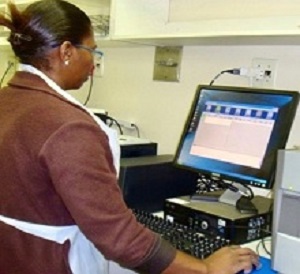
The dismal failure of the World Health Organisation-endorsed GeneXpert test to bring TB under control, illustrates a simple fact, according to a Scientific American report. It’s not enough to have new technology and introduce it into a weak health system.
Seven years ago, the global community of researchers, health-care workers and activists battling tuberculosis was euphoric. A landmark 2010 trial showed that a new genetic test was highly effective at diagnosing TB, prompting hopes that countries could soon finally control the disease, which killed 1.45m that year. The World Health Organisation (WHO), promptly endorsed the test, called GeneXpert, and promoted its roll-out around the globe to replace a microscope-based test that missed half of all cases.
But, writes Ewan Callaway, biomedical reporter at Nature magazine in a Scientific American report, the high hopes have since crashed as tuberculosis rates have not fallen dramatically, and nations are now looking to address the problems that cause so many TB cases to be missed and the difficulties in treating those who are diagnosed.
In an attempt to turn the tide, health ministers and officials from 100 countries met in Moscow on 16-17 November. And a UN General Assembly devoted to TB is scheduled for September 2018.
According to Callaway, experts say that the rollout of GeneXpert offers a cautionary lesson – although, in hindsight, an obvious one – in the battle against TB. The tale is a familiar one in global health care: a solution that seems extraordinarily promising in the lab or clinical trials falters when deployed in the struggling health-care systems of developing and middle-income countries.
“What GeneXpert has taught us in TB is that inserting one new tool into a system that isn’t working overall is not going to by itself be a game changer. We need more investment in health systems,” says Erica Lessem, deputy executive director at the Treatment Action Group, an activist organisation in New York City.
Some 10.4m people were infected with TB last year, according to a WHO report published on 30 October. More than half of the cases occurred in China, India, Indonesia, Pakistan and the Philippines. The infection, which causes coughing, weight loss and chest pain, often goes undiagnosed for months or years, spurring transmission.
Callaway writes that the US government and others spent more than $100m developing GeneXpert. Yet despite the WHO’s ringing 2010 endorsement of the test, the roll-out of GeneXpert, which is manufactured by Cepheid, a company based in Sunnyvale, California (and bought by Danaher, headquartered in Washington DC, earlier this year), was initially slow.
The machines cost $17,000 each and require constant electricity and air-conditioning – infrastructure that is not widely available in the TB clinics of countries with a high incidence of the disease, requiring the machines to be placed in central facilities. Callaway writes that until the US government together with the Bill & Melinda Gates Foundation and UNITAID, an international organisation that aims to lower drug prices, began subsidising tests in 2012, each cost $16.86 (the price fell to $9.98), compared with a few dollars for a microscope TB test.
The WHO says that more than 23m GeneXpert tests have now been purchased in the public sector in the 130 countries eligible for the discount. But Madhukar Pai, an epidemiologist at McGill University in Montreal, Canada, says that this still represents a relatively small proportion of people suspected of having TB. Most countries use the tests on selected group of people, Pai says. India, for example, offers the test only to people co-infected with HIV.
Callaway writes that even countries that fully embraced GeneXpert are not seeing the returns they had hoped for. After a countrywide roll-out begun in 2011, the test is available for all suspected TB cases in South Africa. But a randomised clinical trial conducted in 2015 during the roll-out found that people diagnosed using GeneXpert were just as likely to die from TB as those diagnosed at labs still using the microscope test.
“Just intuitively one would think that finding TB cases earlier would avert TB deaths. The fact that we didn’t find that was surprising,” says Gavin Churchyard, a physician specialising in TB at the Aurum Institute in Johannesburg, South Africa, who led the study. Similar studies in other countries have come to much the same conclusion about GeneXpert.
According to Callaway, Churchyard suspects that doctors have been giving people with TB-like symptoms drugs, even if their microscope test was negative or missing, and that this helps to explain why his team found no benefit from implementing the GeneXpert test. Others have speculated that, by being involved in a clinical trial, patients in both arms of the trial received better care than they would otherwise have done, obfuscating any differences between the groups.
Either way, Churchyard says, his team’s study illustrates how broken South Africa’s TB treatment system is, a problem echoed across other countries with high incidences of TB. Even with accurate tests, cases are still being missed.
Callaway writes that results from the GeneXpert tests take just as long to deliver as microscope tests, and many people never return to the clinic to get their results and drugs; those who begin antibiotics often do not complete the regimen. “What the study really unmasked was that it’s not enough to have new technology and introduce it into a weak health system,” Churchyard says.
[link url="https://www.scientificamerican.com/article/improved-diagnostics-fail-to-halt-the-rise-of-tuberculosis/"]Scientific American report[/link]
